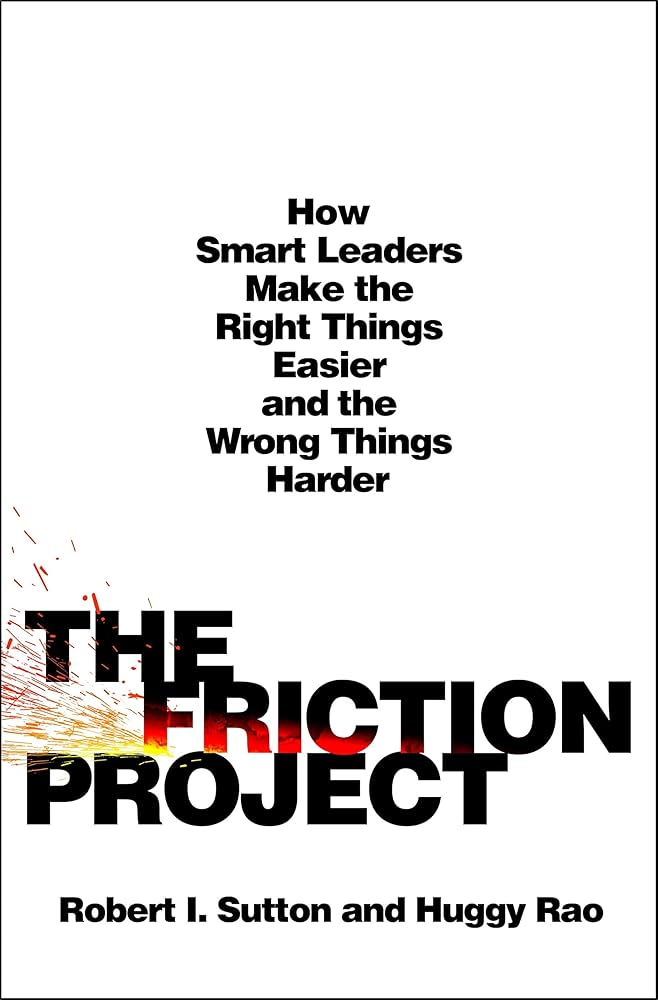The Friction Project 📚

The Friction project collects strategies for removing and adding friction so organisations function better.
Bytes that get stuck in your teeth.
Will Larson:
The conclusion here is clear: the industry will want different things from you as it evolves, and it will tell you that each of those shifts is because of some complex moral change, but it’s pretty much always about business realities changing. If you take any current morality tale as true, then you’re setting yourself up to be severely out of position when the industry shifts again in a few years, because “good leadership” is just a fad.
A list of patterns worth understanding from Jason Yip.
James Stanier:
The key is that you engage with your daily activities mindfully in a way that keeps your weekly update in mind. What I mean by this is that you are always on the lookout for:

The Friction project collects strategies for removing and adding friction so organisations function better.
Little gems strewn within this wide ranging discussion on engineering management.
A sane approach to supporting anonymous questions with teams.
Charity Majors:
The “socio” and “technical” of sociotechnical systems are not neatly separable, they are interwoven and interdependent. There is actually precious little that is purely technical work or purely people work; there is a metric shitload of glue work that draws upon both skill sets.
Jacob Kaplan-Moss:
Performance is contextual: how well you perform your job is deeply dependent on the conditions around you.
Very true.
James Stanier:
regardless of how much autonomy and self-directed time you accumulate, optimal allocation of your capacity is not a box packing problem where you must allocate every single minute of your day. This is an anti-pattern.
Aaron Lerch:
Hiring for additivity requires intentionality. It seeks to answer the question “how does this person change us for the better?” It avoids both stagnation and a lift-and-shift cultural change.
Skills that lead to good code stewardship.
David Copeland:
And to make a long rambling story even longer and more rambling, being a manager or director or VP is kinda like this all the time. You just navigate fucked up policy after policy, deciding which pushback will work or which you have the energy for
A look at some manager onboarding processes.
A look at how Skyscanner support their people’s transition from individual contributer to managers.
Kevin Fishner:
At HashiCorp, we’ve grown from a few hundred to over a thousand people, so the goal is to build scalable systems that enable employees to do their best work and contribute to the outcomes of the company. For us, that’s shaped up into three specific systems: strategic planning, knowledge management, and communications.”
John Barton:
In my very first programming role my manager said to me “You can make any mistake you like once. You’ll have my full support the first time you screw anything up. If you’re not making mistakes, you’re not learning, and if you’re repeating mistakes you aren’t either”.
Gregor Hohpe:
First and foremost, autonomous teams need to live with the consequences of their decisions.
Yep.
the research is clear: Telling people what we think of their performance doesn’t help them thrive and excel, and telling people how we think they should improve actually hinders learning.
Julie Zhuo:
Having all the answers is not the goal. Motivating the team to find the answers is the goal.